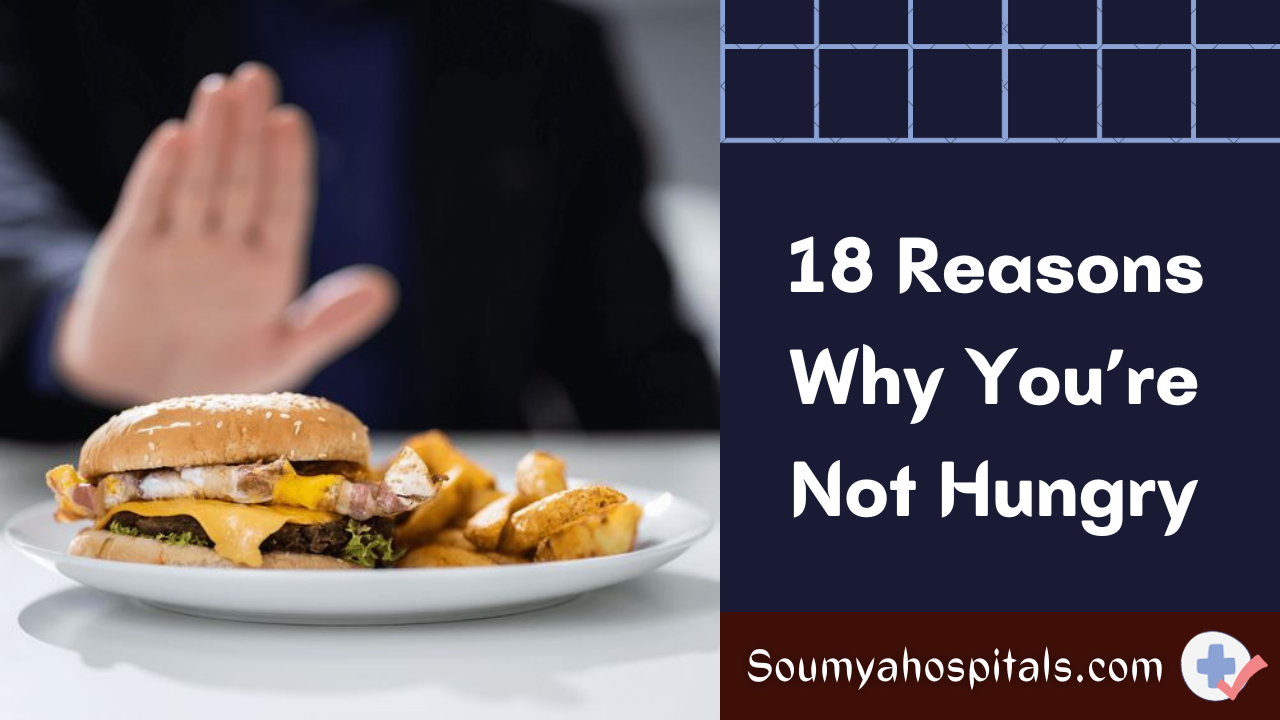Are you losing interest in food? Or do you never feel hungry at all? If you’ve been asking yourself “why am I not hungry,” way too often and if you’re concerned that your body is wasting away or you’re losing weight and feeling unhealthy, check for other symptoms to see if you have a medical problem. With the right care, you may be able to overcome the challenge and see those once familiar hunger pangs return, or at the very least, get the nutrition your body needs.
1. Anxiety
Anxiety can cause you to lose your appetite. While some people actually feel like nibbling something to ease their anxiety or distract themselves, many lose their appetite. Other signs that anxiety is driving your loss of desire to eat include feelings of unease, worrying, being irritable, finding it hard to concentrate, feeling on edge, and being overly tearful. You might also notice you breathe faster, have palpitations and a pounding heartbeat, feel faint, or get the feeling of butterflies in your stomach.
How to cope: Get help for anxiety or panic disorders from a trained medical professional. Try breathing exercises to ease the stress and exercise or run to alleviate anxiety.
2. Depression
If you are clinically depressed, your loss of appetite may be accompanied by feelings of despair, sadness, guilt, low self-esteem, and irritation toward everyone. You may also feel tired and anxious all the time and may even have suicidal thoughts. You may also lose interest in things you normally enjoy doing along with the loss of interest in food.
How to cope: Besides the professional help by way of therapy or medications, exercise can help both ease some mental anxiety and lift your mood, making you more open to eating. Plus, the physical activity could also help with your appetite as your body will feel the need to replace lost calories.
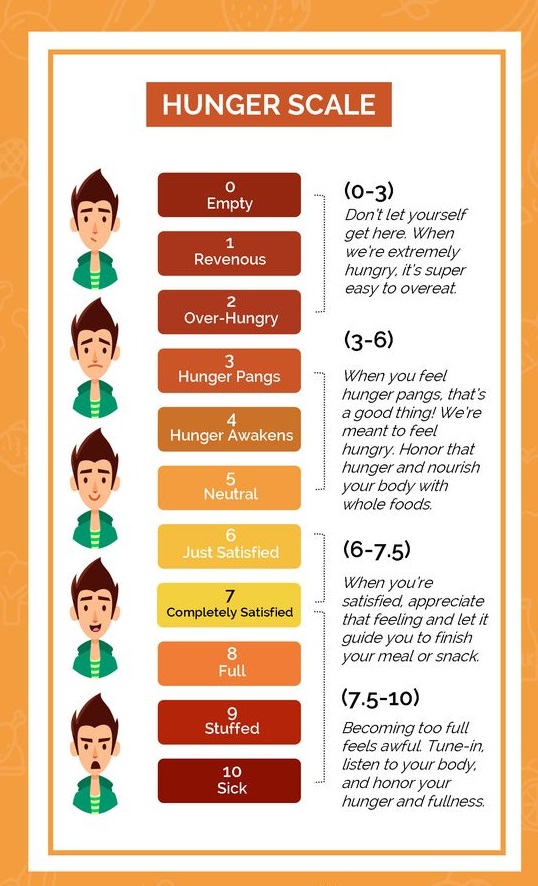
3. Irritable Bowel Syndrome (IBS)
IBS causes intestinal problems like a change in bowel movements as well as abdominal pain. But what can also happen is that you lose your appetite due to the feeling of fullness, buildup of gas, and increased flatulence. The pain and other symptoms usually ease after each bowel movement.
How to cope: A few lifestyle changes can ease some of the symptoms. Exercise and get a good night’s sleep to ease anxiety and other symptoms. Reduce stimulants like cola, tea, or coffee that stimulate the intestines. Have smaller meals and consume more fiber.
4. Oral Thrush
Candidiasis, a fungal infection of the mouth, can cause a decrease in appetite due to the other symptoms associated with the infection. You may lose your sense of taste or find an odd taste in the mouth, which can make eating an unpleasant experience. The cracks and burning sensation in the mouth may also make it physically painful to chew your food.
The easiest symptom to spot are the white patches of plaque that form on the surface of the inside of your mouth. While these can be wiped away, they reveal red sore patches underneath that can bleed.
How to cope: Don’t assume the infection will just go away. It could spread to other parts of the body and that’s dangerous. Ensure you practice good oral hygiene, always rinsing your mouth well after meals, brushing twice a day, flossing, and having regular dental check-ups. Take extra care if you wear dentures. If you use a corticosteroid inhaler, always rinse your mouth well with water after use. Diabetics and smokers may also be more prone to developing oral thrush and must be extra mindful.
5. B12 Or Iron Deficiency Anemia
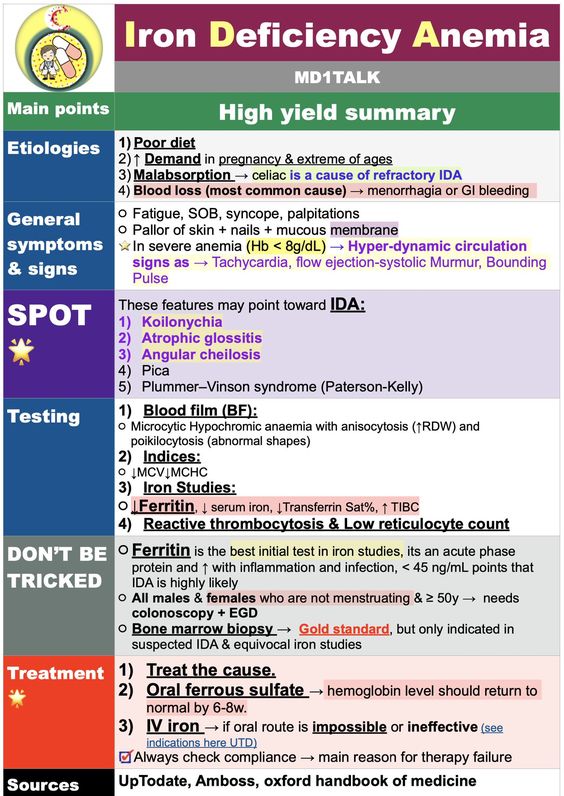
Not getting enough vitamin B12 can cause a loss of appetite. B12 deficiency anemia, a condition where your body has a low red blood cell count, may not always have very visible symptoms. However, a loss of appetite accompanied by diarrhea or constipation, pale skin, fatigue, shortness of breath, issues with concentration, and bleeding gums or a swollen red tongue are visible signs of the problem. Left unchecked, it can cause confusion, depression, or even dementia, a loss of balance, as well as tingling/numbness of the feet and hands. Do you have these symptoms of vitamin B12 deficiency?
An iron deficiency may also result in a dip in appetite. To be specific, our bodies need iron to make hemoglobin, a complex protein found in red blood cells, which is responsible for the transportation of oxygen in the red blood cells. When you’re deficient in iron, your hemoglobin levels fall. And studies have found that low hemoglobin also lowers the levels of ghrelin (the hunger hormone responsible for regulating appetite by making you feel hungry) and insulin (which uses glucose in the blood as energy and triggers the need to eat) in the body. This reaction, in turn, might lead to appetite loss. Other symptoms of the condition include dizziness, lethargy, light-headedness, malaise, brittle nails, hair loss, irritability, and shortness of breath.
How to cope: Taking a B12 shot or supplements may be recommended by your doctor. In addition, ensure you have a balanced diet that includes plenty of poultry, dairy, shellfish, and eggs – foods rich in the nutrient. Vegetarians will have to take extra care to ensure they get the adequate levels through food or, if need be, supplements. Prolonged use of antacids and excessive alcohol consumptions also make it harder for your body to absorb the vitamin, so cut down on these.
Ensure you get adequate iron through red meat, green leafy vegetables, beans, dried fruits, and nuts. Sleep and exercise are important to help with overall recovery. Sometimes, multivitamins or iron supplements may be suggested.
6. Anorexia
Eating disorder anorexia is marked by a loss of appetite. You will also experience weight loss and may be unable to maintain the right weight for your height and structure as well as age. That’s because you possibly harbor a very intense fear of becoming fat – even when you might actually be underweight.
Eating a highly calorie-restricted diet, limiting what you eat, exercising too much, using laxatives and purging your body, inducing vomiting, and even binge eating may be other signs you have anorexia.
How to cope: Cognitive analytic therapy, cognitive behavioral therapy, interpersonal therapy, focal psychodynamic therapy, and family interventions are the usual line of treatment. In addition, to help regain weight to healthy levels, you may need to work up from slowly increasing the quantum of food consumed. The goal is to establish a regular eating pattern with three meals a day. Medication may be required for some.
7. Cancer And Treatment Side Effects
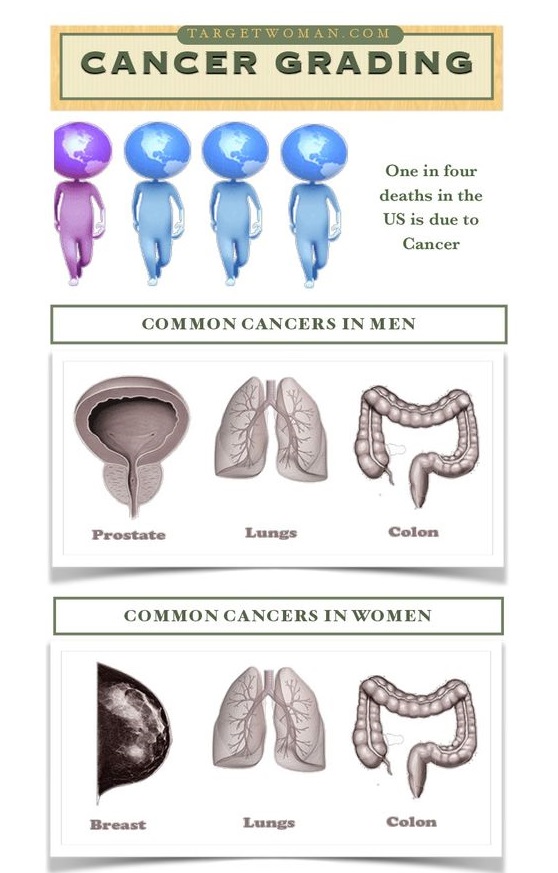
Those with cancer may experience an altered sense of smell or taste which can hamper their appetite. A tumor may sometimes grow, interfering with feelings of hunger. Cancers of the ovaries, colon, stomach, or pancreas, may all cause a loss of appetite.
According to the American Cancer Society, the side effects of the treatment can also cause a reduction in appetite. Some tips below can help you get in more food. But always contact the doctor if you aren’t able to eat anything for a day or more, or if you lose over 5 pounds. If your urine turns dark or you don’t urinate for over a day, or fail to pass a bowel movement for 2 days, it is again reason enough to reach out to a medical professional. Pain while eating and trouble keeping down liquids are other reasons to contact your doctor.
How to cope: Don’t eat big meals. Instead, have several mini meals through the day and work them into your treatment regimen so that you treat eating as a necessity and not something you necessarily do for pleasure. Increase the calorie content of the food you do eat so it is nutrient-dense and calorie-rich – for instance, try adding healthy fats such as coconut oil, avocados, or olive oil to your diet.
Make food easier to eat by cutting them into small morsels, using lots of gravy or sauce so it goes down easier. Distract yourself at mealtimes by always eating with company or while listening to music or watching something on television. Suck on a hard candy, sip some mint tea, or drink ginger ale to cut any odd aftertaste in your mouth from your treatment or health problems.
8. HIV
Human immunodeficiency virus (HIV) can cause weight loss as a result of a loss of appetite. You may not feel hungry due to opportunistic infections like candidiasis, cryptosporidiosis, isosporiasis, mycobacterium avium complex, or tuberculosis. These tend to make the most of the low immunity of your body to attack.
You could also lose your will to eat because of HIV wasting syndrome. This is diagnosed as a condition where you lose over 10 percent of your body weight. It may result in a total loss of appetite or cause you to feel full after eating very little. You might also have bouts of diarrhea or low-grade fever.
How to cope: You may need to eat high-calorie meals that are rich in protein to prevent all your muscle from wasting away. Include foods like cheeses, legumes, eggs, peanut butter, sauces, and even milkshakes and instant breakfast drinks that go down easily in your meal plan. Also try and do some strength-building exercises like gentle weight lifting or resistance training.
9. Liver Problems And Jaundice
Liver disease and early stage liver failure are marked by a loss of appetite along with nausea, diarrhea, and fatigue. As the condition progresses, you may also find yourself feeling confused, disoriented, or very sleepy. Prompt and timely treatment is critical to prevent the chance of a coma or even death. If you have not caught the problem early when it was liver inflammation, which has no visible symptoms, or fibrosis that is marked by scarring of the liver, you may develop cirrhosis. This eventually leads to liver failure if left untreated.
Symptoms of cirrhosis include easily bruising, easily bleeding, jaundiced yellow eyes and skin, water buildup in the abdomen and legs, toxic buildup, and itchy skin. Hepatitis and chronic liver disease are other liver problems that have similar effects on your appetite.
How to cope: If your liver problems are rooted in fatty liver disease or alcohol consumption, abstain from drinking alcohol for a few weeks. After that, only drink within recommended guidelines if you must. Those with alcoholic hepatitis or cirrhosis should give up alcohol for life, according to the National Health Service. After treatment, as other symptoms ease, your appetite may also improve again.
10. Medication Side Effects
Certain medications may cause a loss of appetite. You may not feel very hungry and may not want to eat at all. These include chemotherapy drugs, morphine, codeine, muscle relaxants, antifungals, antidepressants, antibiotics, diuretics, and drugs that are prescribed to treat Parkinson’s disease. In addition, if you use drugs like heroin, cocaine, or amphetamines like “speed,” you could end up killing your appetite as well.
How to cope: If there are no alternative medications you can take, you will need to learn to just eat because you have to. However, if you’re abusing street drugs, there are many reasons to try and quit for your health overall. Get professional help if you need to.
11. Chronic Obstructive Pulmonary Disease (COPD)
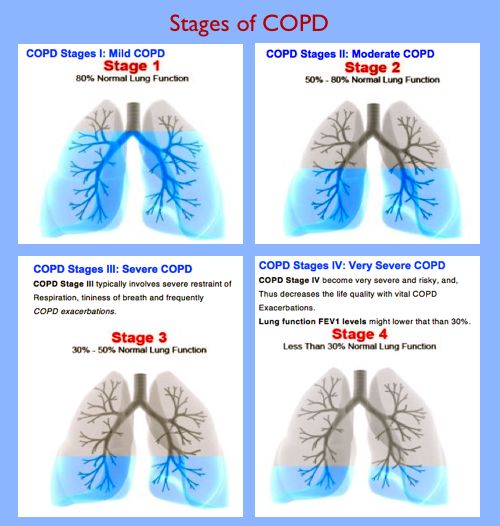
Chronic obstructive pulmonary disease, a term used to describe a range of progressive lung diseases like chronic bronchitis, some kinds of bronchiectasis, emphysema, and refractory asthma, can cause appetite loss in addition to breathlessness, tightness of the chest, wheezing, and frequent coughing.
This anorexia develops as a result of inflammation as well as hormonal derangement. Those with the problem tend to consume fewer calories than they burn. Breathing becomes more of an effort and costs more oxygen. Which is why those with COPD tend to have low body weight.
How to cope: Besides treatment for COPD, which may include medication as well as cutting out triggers of lung irritation (including smoking), increasing nutritional intake may help. Nutritional supplements along with pulmonary rehabilitation to improve breathing can also improve the condition.
12. Alzheimer’s Disease
Having dementia or Alzheimer’s disease can also cause trouble for your weight and appetite. Ensuring meals are consumed regularly and with the right balance of nutrients is often a challenge. The decline in cognitive function caused problems like feeling overwhelmed when too many food options are available. Some may forget to eat altogether. Unfortunately, not getting enough nutrition could worsen the condition.
How to cope: Get the help of a family member or caregiver to plan or help with meals and, if possible, eat together. Work out a menu plan with different foods and plenty of fresh produce, lean protein, and low-fat dairy. Cut down on food high in saturated fat or cholesterol, lard, and fatty meat. Avoid refined sugars and processed foods and cut salt intake. However, in later stages of Alzheimer’s, having sugar is known to help stimulate the appetite. Opt for fruits and fruit juices to satisfy your sweet tooth.
13. Heart Failure
Heart failure can cause eating and digestive symptoms like loss of appetite as well as constipation, nausea, and vomiting. Shortness of breath and fatigue also make it harder to get in enough food and nutrition.
How to cope: Besides the treatment for your heart problem, when it comes to food, a few small changes can make a world of difference. For instance, switch to multiple mini meals instead of large meals. Pick things you enjoy eating. Have easy-to-digest and easy-to-have foods like soups or stews. When you’re eating, ensure you are in a room that is well -ventilated and keep the windows open. Sit upright to help ease airflow.
14. Stress
If you’re having a stressful day, your body might decide to put food and your appetite on the backburner. Research indicates that when you’re stressed, a structure in the brain called the hypothalamus releases a hormone called corticotropin, which suppresses appetite. In addition to this, the brain sends messages to the adrenal glands (present on top of the kidneys) to release epinephrine, a hormone that triggers the body’s flight or fight response – a physiological state that temporarily lowers appetite. That said, if stress persists, it could trigger the release of another hormone called cortisol which increases appetite along with your motivation to eat.
How to cope: Once a stressful episode is over, your eating habits should go back to normal. To avoid living with stress, you could take up mindful meditation, exercise regularly, and make sure you spend some time with your friends and family.
15. Viral Infections
If you’re feeling under the weather, there’s a good chance that a virus is behind your low appetite. In fact, loss of appetite occurs 1–3 days after you’ve been hit by the flu or a cold. Besides this, viral hepatitis (types A, B, and C) leads to loss of appetite as well. Here’s how you can differentiate between the 3 types, based on the symptoms that will accompany your lack of hunger.
- Type A: Transmitted through food or water that is contaminated with feces, this condition causes fever, tiredness, nausea, abdominal discomfort, and diarrhea, followed by jaundice in a few days.
- Type B: Transmitted via contaminated blood or bodily fluids (often through unprotected vaginal and anal sex, exposure to infected blood via cuts and wounds, or sharing unsterilized needles and personal hygiene products) this condition causes, abdominal discomfort, nausea, and vomiting. Sometimes you might also experience joint pain and rash. Like hepatitis type A, type B also progresses to jaundice.
- Type C: Transmitted through infected blood or blood products due to unsterilized injections and needles, this condition causes fatigue, abdominal discomfort, nausea, and vomiting, sometimes progressing to jaundice.
How to cope: Apart from ensuring that you avoid the transmission of any of these conditions by maintaining your hygiene, all you have to do is wait until you feel better. Your appetite will go back to normal as you do. Be sure to load up on soups and veggies to fuel your body with optimum nutrition while healing.
16. Pregnancy
We often talk about pregnancy cravings and the fact that pregnant women have to eat for two. But pregnancy can also put a dampner on your appetite. This could be due to morning sickness which leads to nausea and vomiting as well as an aversive reaction to certain foods and even low appetite. Besides this, coming down with a cold or the flu while pregnant can lower appetite.
How to cope: Battle morning sickness by having small meals that consist of sweet potatoes, organic radishes, ginger, raspberries, blueberries, pineapples, or even greek yogurt. Research has also found that kale or seaweed chips, dry scrambled eggs, smoothies, and fresh juices can ease the queasiness.
17. Hypothyroidism

Radiation therapy for an overactive thyroid or a surgical removal of all or a part of the thyroid gland can lead to hypothyroidism.
Often caused due to an autoimmune disorder called Hashimoto’s thyroiditis, hypothyroidism leads to fatigue, constipation, dry skin, brittle nails, difficulty in remembering things, high blood pressure, and aches and pains. Low thyroid function, which is characteristic of this condition, causes lesser energy-burn in the body. This, in turn, reduces your body’s calorie requirements, leading to a loss of appetite.
How to cope: Often the signs of hypothyroidism are mistaken to be that of another disorder or simply aging. Consult a professional if you have a combination of the symptoms mentioned above. Besides this, keep up with your medications and doctor’s appointments to manage the condition.
18. Migraine
If you suffer from migraines, your headache might bring with it a loss of appetite. You might also experience nausea and vomiting during an attack, which could last for 4–12 hours. Your appetite should go back to normal once your migraine has subsided. But if you’ve noticed a significant dip in your appetite in general, do consult a professional.
How to cope: Although not all migraine attacks can be prevented, you could avoid common triggers such as bright lights, loud music, lack of sleep, excessive travel, and fermented, pickled, MSG-laden foods and drinks. In addition to this, work on relieving stress, another major trigger, by trying yoga, acupuncture, massage. Be sure to exercise regularly as well. You could also try medications but be sure not to overload on pain-relieving pills since that might trigger a migraine as well.
Also Read:
